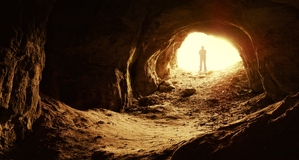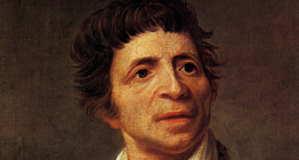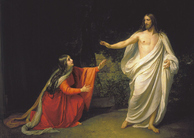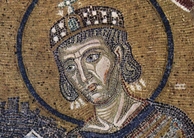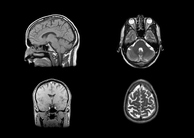Free Will in the Christian Cosmology: Comparing Paul and Augustine
By
2011, Vol. 3 No. 08 | pg. 1/1
IN THIS ARTICLE
KEYWORDS
The Abrahamic God is an awesome god. He is omnipotent, omniscient, omni-benevolent, and omnipresent. Such a being truly deserves our reverence. But could we choose to revere such an all-powerful, all-knowing, all-good, and all-present being such as this? Or would we have no choice in the matter? This is a central question of theologians within any of the three Abrahamic traditions: Judaism, Christianity, and Islam. If God exists as a being with the four aforementioned attributes, can human beings be said to truly have free will?1 But could we choose to revere such an all-powerful, all-knowing, all-good, and all-present being such as this? Or would we have no choice in the matter? While numerous religious scholars have approached this essential question, the focus of this paper is Saint Paul, who addresses human beings’ freedom of choice in Chapter 7 of his letter to the Romans, and Saint Augustine, who formulates a defense of free will in his treatise On Free Choice of the Will. Paul lands on a kind of dualism in his discussion of law, human nature, and salvation, and Augustine approaches a robust version of human autonomy in his account of the problem of evil. While both saints manage to fit an articulation of free will within a Christian cosmology without changing the nature of God, Augustine’s account of the will seems to more closely resemble our actual phenomenology, and therefore seems to be the more complete picture of human autonomy in a world created by the awesome Christian God. Paul's Letter to the RomansIn chapter 7 of “Romans,” Paul writes about the dilemma of reconciling human nature, as it can be defined within the context of the fall of man, with Jewish law, which is essentially in the form of God’s commandments in the Old Testament which all present negative imperatives (“Thou shalt not…”). It is necessary to understand these two concepts before one tries to understand Paul’s grim picture of free will.“For I know that nothing good dwells within me, that is, in my flesh,” writes Paul (7.18). This line, along with others in the chapter which employ the word “flesh” and draw distinctions between the body and mind, points to the fault of the flesh that all human being share, being children of Adam and Eve, the first sinners. These lines also clearly reveal the dualism inherent in most, if not all, Christian thought: “I of myself serve the law of God with my mind, but with my flesh I serve the law of sin” (7.25). Once these two substances – body and mind – are made separate, one can see clearly Paul’s view of human nature as it is contained in the physical human form. We are like children told not to take a cookie out of the cookie jar. Before anyone said anything, we would not even think of doing so, but as soon as we are told not to do it, our hand cannot resist the urge to take a cookie. As Paul writes, “Yet, if it had not been for the law, I should not have known sin. I should not have known what it is to covet if the law had not said, ‘Thou shalt not covet’” (7.7). Similarly, Adam and Eve were placed in the Garden of Eden without any moral knowledge; they had no epistemological basis for distinguishing between right and wrong. But once the forbiddance was there, curiosity, which also springs from the negative command, was provoked. As a result, according to the second creation story of “Genesis,” humans committed the first sin by disobeying God’s command. Significantly, once they acquired knowledge of right and wrong, they immediately felt shame and cognitively knew that what they did was wrong. And so their minds understood, but their bodies acted. All these generations later, so the story as interpreted by Paul goes, we still have bodies – flesh – that are prone to sinful action, even if our minds understand right and wrong. Our flesh did come from those original sinners, after all, while our minds and spirits come from God. The second foundational idea to Paul’s dilemma is the nature of God’s laws for the Jews. Essentially, “the law is holy and the command is holy and just and good” (7.12), but it is also the law which makes sin possible and leads to our death by reviving sin (7.9). This is inextricably linked to the nature of human beings. While the law as it was put forth in the Old Testament was originally thought to be a guide to reaching closer to God, Paul tells the Romans that the law actually is the root of sin rising in an individual and causing him or her to turn away from God. In these remarks, then, Paul is dramatically reversing long-held tenants of Judaism. It is not through serving the law that one gets close to God, but through faith in Jesus Christ that one is saved from the sinful flesh and able to at least will to do right and “bear fruit for God” (7.4). Here, then, is the dilemma Christians are faced with, according to Paul. The human body is predisposed to disobey laws presented as negatives, thanks to inheriting flesh from Adam and Eve, yet the mind is capable, through Christ, to will to obey God’s commands. It is a story of mind versus matter, however, in that the mind, even with full knowledge of God’s law2 and full intention to do God’s bidding, cannot control the body and keep it from acting on carnal passions. The will exists and is the way to God, but there is a disconnect between the will and the body. When one does wrong it is not because of one’s will to do wrong, but it is sin that does wrong through the body, and sin comes about through knowledge of the law. Yet knowing the law is necessary, though not sufficient, for knowing God. The other condition which Paul wants to make clear is knowledge of Christ and faith in his salvation. If one knows the law, one’s body will turn away from following the law. But if one knows the law and knows Christ, one’s mind “can will what is right, but [one’s body] cannot do it” (7.18). If we as readers do some heavy lifting of our own, we can see how this fits alongside God’s omnipotence and omniscience. God knows everything that we will do because our bodies are predetermined by our faulty nature to sin once knowledge of the law is acquired in the absence of Christ. Thus, God is left with a simple modus ponens syllogism for determining the action of an individual: (1) If this person knows the law and he is of flesh, he will sin, (2) This person knows the law and is of flesh, therefore, (3) this person will sin. Paul’s articulation of free will places the will not within the realm of predictable action, since that is predetermined, to an extent, but within the realm of the purely mental. While God can undoubtedly read (past, present, and future) minds, this does not exclude the possibility that a person can choose to set one’s mind toward God. God would know that he or she would do this, but he or she still decides to do so. In fact, this is exactly the kind of heavy lifting that Augustine does in his treatise On Free Choice of the Will. Augustine's Doctrine of the WillAugustine’s discussion of the will in On Free Choice of the Will stems from an inquisition into the problem of evil. Indeed, the dialogue opens with Evodius asking, “Tell me, please, whether God is not the cause of evil” (3). Much of the discussion, then, while dealing with an essential nature of human beings (are they determined or autonomous?) is also a defense of the benevolent nature of God. If human beings did not do evil themselves, but it was caused by God, then it would not make sense for God to punish or reward human beings for doing good or evil since they would not be the cause of their own actions (Carlo Filice might say that they would have no “agent credit”). But God does reward and punish people, and all that God does is just, according to Christian doctrine, so God could not be rewarding or punishing essentially determined beings. We therefore must have free will.3 That brief synopsis of his argument is indicative of the reasoning present throughout the treatise. Much of the premises that allow Augustine to come to the conclusions which he eventually does are premises about the perfection of God and the imperfection of humans. This is how Augustine fits free will into a Christian cosmology. In book three, Evonius asks if God’s foreknowledge (he is omniscient after all) is inconsistent with the notion of human autonomy. Augustine’s answer, of course, is no:
Here Augustine is constructing the same kind of reasoning as we as readers did in trying to situate Paul’s articulation of free will within Christian cosmology. Just because God knows what human beings will each eventually decide to do with their wills does not mean that their actions are predetermined. Augustine essentially rejects the probability argument against the compatibility of God and human autonomy that says since the probability of a person committing any action is 1 (which is true because God cannot be wrong in his foreknowledge), that person’s action is determined by forces outside of himself. Augustine astutely points out, indirectly, that God’s foreknowledge is simply knowledge of the fact that person S will decide to perform action A rather than B. Part of God’s foreknowledge is the knowledge that S decides to do A over B. At the point of the decision, S may weigh his options in any number of ways, but he is not determined to make one decision over the other. God just simply knows, in his infinite wisdom which is beyond human understanding, that S will pick A. He does not force S to pick A. S just, as a matter of fact, picks A, and God knows all facts. Now, this sure looks like determinism to someone who is committed to the probability argument, but it is not, since the human being making the choice could have chosen otherwise; it just happens to be a fact about the future world that he did not! This reasoning allows Augustine to situate a model of human free will within a world with an omniscient, omnipotent, omni-benevolent, and omnipresent God, but it again brings up the problem of evil. For if God is all knowing He absolutely knows when someone is going to do something horrible, and if He is all good then He surely does not want any suffering to enter into His world because of this horrible act, and if He is all powerful and always and everywhere present then there is surely nothing stopping him from stopping this horrible act, right? So how can evil ever come into the world? This returns us to Books I and II of his treatise. In Book I, Augustine argues that evil does not come from God, but lust is the source of all evil, it being the motivation which provokes evil actions (6-8). Lust is an attribute of human imperfection, and so evil does not exist as a positive substance in the world created by God, but as a lack of perfection in human beings. Therefore, sin is not caused by God, but by the human will. Human beings sin “when [they are] turned away from divine things that are truly everlasting, toward things that change and are uncertain” (33). Augustine offers an illustration of this concept in his treatise called City of God. In the treatise, he placed human beings in a kind of middle state between the city of God and heaven, or the New Jerusalem, and the city of depravity and beasts, or Babylon. A person can choose to either turn towards the eternal city of God, a turn which Augustine calls conversion, or turn towards the temporal carnal pleasures of Babylon, a turn which Augustine calls perversion. He also offers a personal account of both of these kinds of turns in his Confessions, in which he tells of his sins of lust in Carthage and his eventual conversion after reading Paul’s letter to the Romans and learning from Ambrose to read the Bible figuratively or allegorically instead of literally. Therefore, as Augustine concludes from reason and his own personal experience, “we commit evil through free choice of the will,” but it is then reasonable to “question whether free will…ought to have been given to us by Him who made us” (34). Thus, God is not the direct source of evil, since that role is given to lust, which is a characteristic produced by a lack of perfection, not the presence of some evil thing in the world. Further, lust is not a guaranteed cause of evil since it takes an act of the will to allow lust to direct one’s thoughts and actions, and so sin is done through humans’ execution of their free wills. But that means, seemingly, that God is an indirect cause of evil since he granted human beings with the very tool through which they are able to commit sin. This is not a fault of God’s though, as we see in Book II, since the free will is an intermediate good because even though it can be abused, without it one could not live rightly (77-83). Thus, the cost of having there be potential for humans to live wrongly is a necessary one if God’s omni-benevolence is to be upheld, for if He did not grant us free will, we would have been condemned to an existence in which it was impossible for us to live rightly, since without the will there is no intention, and, as Plato and Aristotle each maintained as Augustine does, intention is the seed of the goodness or badness of an act. ConclusionViewing the accounts of free will put forth by the two saints side by side, it is evident that Augustine’s doctrine of the will is very much an improvement upon Paul’s account in “Romans.” Paul gives utterance to the role of dualism4 in allowing one to find a place to locate the will, which Augustine certainly uses in his more subtle separation of body and mind. Also, as aforementioned, Augustine does a lot of the leg work Paul leaves out which allows Christians to maintain the perfection of their God and still allow for human autonomy. In addition, Augustine’s account seems much more faithful to how human beings actually experience apparent choices made by the will. Indeed, it seems that when we will something we in fact are able to act upon our thoughts, and we often experience a seemingly causal connection between thought and action, not a disunity of mind and body like the one which Paul describes. Instead, the mind and body seem to act in concert with one another, so even if they are different substances, they are inextricably linked, as Augustine knew from how his voluntarily willed thoughts of perversion led him to act sinfully throughout the earlier parts of his life. Augustine’s picture of human free will, then, seems to be more complete and true to our actual experiences than Paul’s, though without Paul’s foundation, perhaps we never would have had Augustine’s account. ReferencesThe revised standard version Holy Bible. New York, New York: Penguin Books, 1974. Print. Augustine. On Free Choice of the Will. Trans. Anna Benjamin and L.H. Hackstaff. Upper Saddle River, New Jersey: Prentice-Hall, 1964. Print. Endnotes1.) The italicized qualification is necessary in order to make explicit that the existence of free will does not necessarily disprove the existence of God. A typical unsophisticated philosophical libertarian might argue that since human beings have free will, God does not exist. In fact, God could still exist with simply different attributes. Of course, the concern of this paper is teasing out a way in which Christians can answer this objection without changing the nature of their God. This proves to be a much more difficult philosophical move to make. 2.) Insofar as “full knowledge” of God’s law is possible under the pretense that God’s will is somewhat beyond human understanding. 3.) There is indeed much to be unpacked here. I will return to Augustine’s argument for the existence of free will later in my exploration of the nature of sin and the “middle state” of human beings. 4.) It is uncanny how much Paul’s account does unknowingly anticipate 20th and 21st century arguments for determinism based on the laws of causation governing the physical sciences. Many philosophical libertarians will posit a kind of substance dualism in response to this by granting that while the body, a physical substance, is subject to the determinism which results from the principle of causation at work in nature, the mind or soul is not since it is not a part of the physical system and therefore not subject to its laws of causation. Suggested Reading from Inquiries Journal
Inquiries Journal provides undergraduate and graduate students around the world a platform for the wide dissemination of academic work over a range of core disciplines. Representing the work of students from hundreds of institutions around the globe, Inquiries Journal's large database of academic articles is completely free. Learn more | Blog | Submit Latest in Theology |







